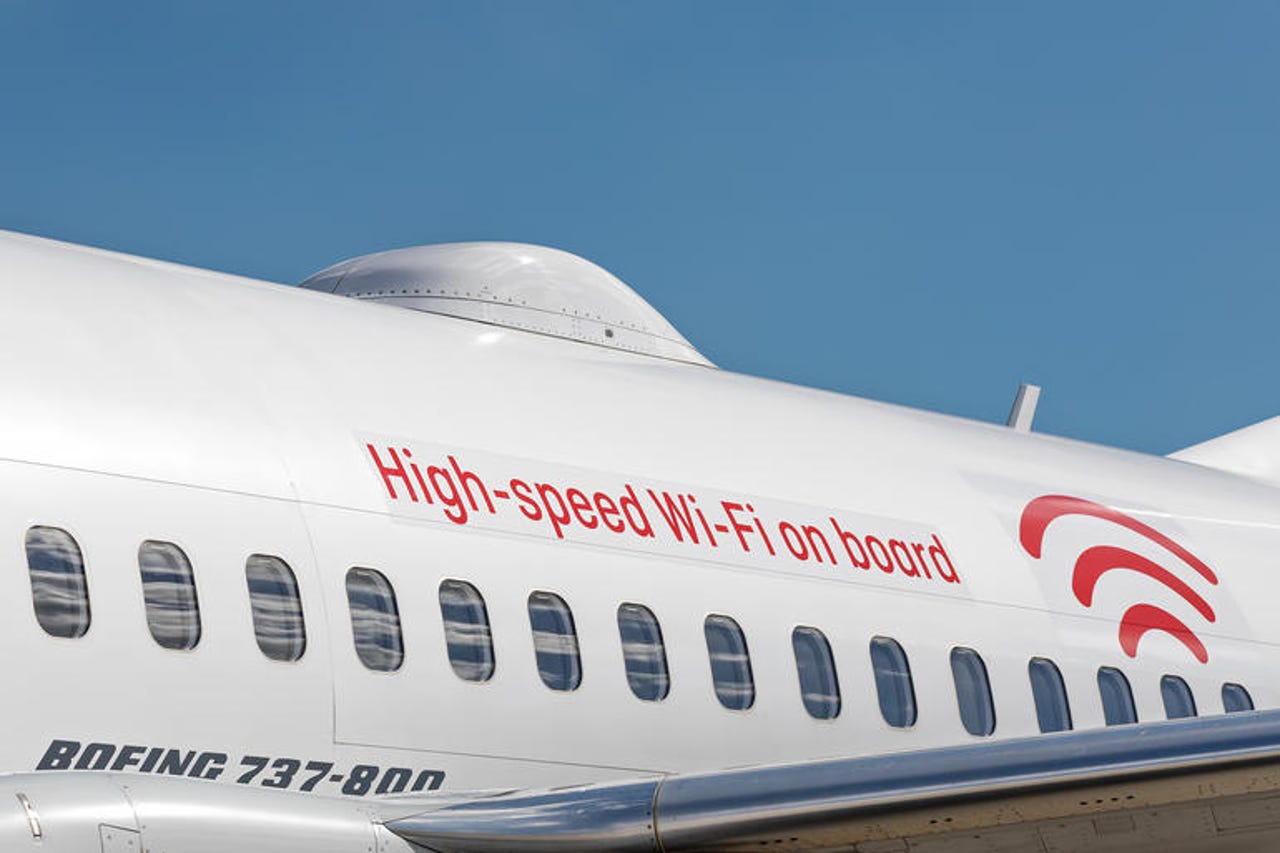Qantas to accelerate in-flight Wi-Fi rollout


Qantas has announced that it will accelerate its rollout of Wi-Fi services on its domestic Airbus 330 and Boeing 737 aircraft late next month following the completion of its trial along with regulatory approval for the service.
"Our investment in free in-flight Wi-Fi will ramp up from September, as we finish what has been a successful trial and move to an accelerated rollout to our domestic A330s and 737s," CEO Alan Joyce said during Qantas' 2017 financial results presentation.
Qantas further revealed that it is "waiting for an improved technology that will allow fast Wi-Fi for our international routes".
Joyce lauded the airline's transformation program for its financial results, which saw a full-year underlying net profit of AU$1.4 billion -- the "second-highest underlying profit result in the group's history" -- for FY17.
Statutory net profit was AU$1.18 billion, while revenue was down 1.4 percent to AU$5.63 billion as all of its transformation targets were delivered during the 12-month period.
"We have a plan to keep delivering sustainable returns well into the future. We're investing in lounges, Wi-Fi, and cabin upgrades; looking at new aircraft to evolve our network; and diversifying into new businesses like insurance and financial services," Joyce said.
As of June 30, Qantas had a net debt of AU$5.2 billion, which it said was towards the lower end of its target range.
"Combined, Qantas and Jetstar now have around 90 percent of the domestic profit pool and a widening margin advantage over their competitors," Joyce added.
"Qantas International came under continued pressure from excess capacity in the market, but these forces eased later in the year and the airline delivered the second-highest result in its history."
Qantas commercially launched its free in-flight Wi-Fi in beta mode on-board its Boeing 737 VH-XZB aircraft that travels between Melbourne, Sydney, and Brisbane in early April, with a series of live tests during its first flight seeing speeds between 2.57Mbps and 7.24Mbps download and 0.26Mbps and 0.61Mbps upload.
During initial testing in February, Qantas had connected 140 passengers with an average of 1.6 devices each to the Wi-Fi system at download speeds of between 7Mbps and 12Mbps.
Originally, Qantas was aiming to enable access speeds of up to 20Mbps per passenger, with satellite communications service provider ViaSat looking to provide a service-level guarantee to Qantas of 12Mbps at all times throughout the flight once the service leaves beta mode.
According to Qantas, its Wi-Fi service has seen an average uptake per flight of 32 percent, and customer satisfaction of 88 percent.
Reliability stood at around 98 percent as of July, with fewer dropouts than during its testing phase, and download speeds of more than 12Mbps.
Qantas last month then announced kitting out a second domestic 737 aircraft with new Wi-Fi technology from ViaSat ahead of eight more gaining the equipment by the end of September.
ViaSat's new equipment is tipped to provide faster speeds and more reliable connections, though it will not be switched on until the end of September as the newer technology must undergo additional testing.
Around 80 Boeing 737 and Airbus 330 aircraft are expected to be fitted out with the service by late 2018. Once the rollout is complete, around 15 million customers per year will experience the free on-board Wi-Fi.
Qantas first partnered with ViaSat to deliver the Wi-Fi service using Australia's National Broadband Network (NBN) Sky Muster satellite service in February last year. The service makes use of idle satellite capacity as the aircraft travels through Sky Muster's 101 Ka-band spot beams.
A satellite antenna will be mounted on top of each aircraft by Qantas engineers, along with several wireless access points, resulting in similar signal strength for all passengers no matter where they are seated on the plane.
Qantas has also partnered with Foxtel, Stan, Netflix, and Spotify to allow customers to stream content for free while in-flight.
The airline is also in discussions to bring the Wi-Fi service to its international fleet in future to enable all of its customers to access emails, streaming services, news, social media, and online browsing while on-board.
Qantas' FY16 results saw underlying profit increase by 57 percent to AU$1.53 billion, and statutory profit before tax up 80 percent to AU$1.42 billion.